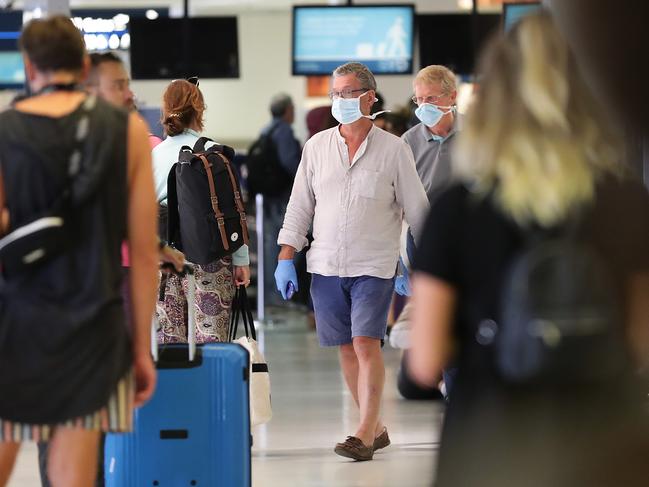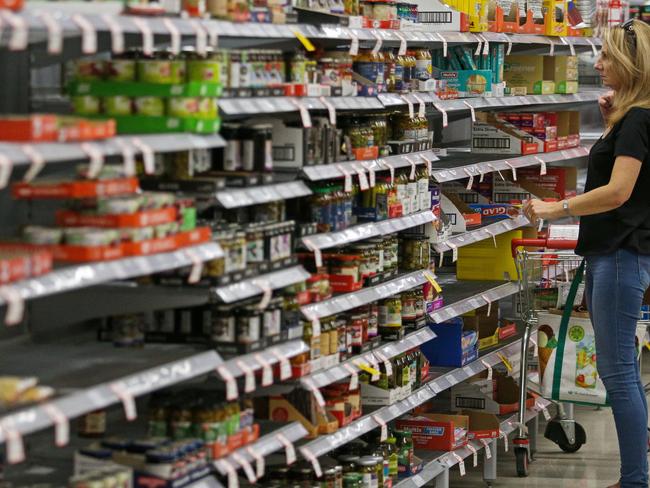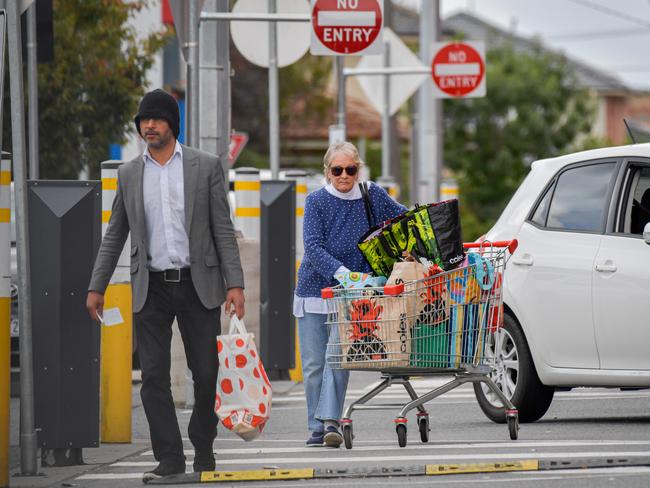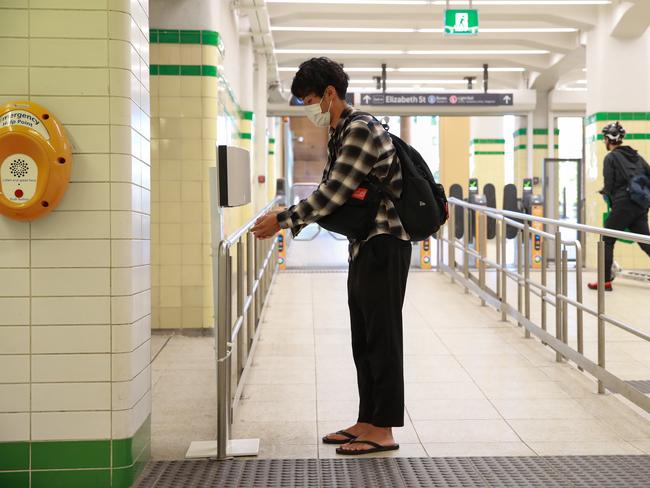COVID-19 words and questions keeping Aussies awake at night
Many Australians are still confused by COVID-19, as the most popular online searches around the deadly virus have revealed. Here are the issues that are causing them the most stress.
Coronavirus
Don't miss out on the headlines from Coronavirus. Followed categories will be added to My News.
Exclusive: Many Australians are still confused by COVID-19, as online searches around hand sanitiser, the meaning of a pandemic, travel bans, virus symptoms and stockpiling continue to keep them awake at night.
New data obtained by News Corp from SEMrush, an online data trends platform that uses more than 30 tools to collate global search, content, social media and market research found across Australia, the word pandemic was one of the most active keywords in terms of growth and search volumes from December last year to March.

In NSW, ‘pandemic virus’ attracted a 1344 per cent increase in searches, as the term ‘pandemic meaning’ had an 819 per cent rise, and the question ‘what is a pandemic’ rose by 1272 per cent.
There was a 510 per cent increase in searches for hand sanitiser and wipes, a 320 per cent rise in search for homemade hand sanitiser, and 366 per cent spike in search for how to bulk buy hand sanitiser.
A 2000 per cent increase in searches for ‘stockpiling Australia’ was seen as was an 800 per cent rise in search for ‘stockpile food list’. ‘Emergency food list stockpile’ had a 300 per cent spike.

The term ‘Australia travel ban’ rose by 1018 per cent but the keywords ‘travel ban countries’ was searched by 2000 per cent more people.
While ‘self isolation’ searches increased by 555 per cent, ‘social isolation and depression’ increased by 100 per cent.
In Victoria, the term ‘pandemic meaning’ had an 1041 per cent rise in searches, but ‘pandemic definition’ increased by 1976 per cent. ‘Pandemic virus’ increased by 1757 per cent.
Searches for ‘pandemic planning checklist’ also rose by 200 per cent.
There was a 806 per cent spike in searches for hand sanitiser and wipes and a 387 per cent increased interest in ‘hand sanitiser bulk’.
A 2000 per cent increase in searches for ‘stockpiling Australia’ was seen and the term ‘emergency food list stockpile’ had a 400 per cent spike.
The term ‘Australia travel ban’ rose by 1284 per cent but the keywords ‘travel ban countries’ was searched by 750 per cent more people.
While ‘self isolation’ searches increased by 433 per cent, ‘social distancing’ increased by 200 per cent.

In Queensland, the question ‘what is a pandemic’ rose by 1284 per cent, as ‘pandemic meaning’ attracted a 852 per cent increase in searches.
There was a 928 per cent increase in searches for hand sanitiser and wipes, a 376 per cent spike in search for how to bulk buy hand sanitiser.
A 1300 per cent increase in searches for ‘stockpiling Australia’ was seen as was a 400 per cent rise in search for ‘stockpile food list’. ‘Emergency food list stockpile’ had a 200 per cent spike.
The term ‘Australia travel ban’ rose by 1257 per cent but the keywords ‘travel ban countries’ was searched by 800 per cent more people.
While ‘self isolation’ searches increased by 271 per cent, ‘virus test’ had a 100 per cent search increase.

In South Australia, the term ‘pandemic meaning’ had an 1018 per cent rise in searches, ‘pandemic virus’ rose by 3800 per cent and ‘pandemic definition’ increased by 528 per cent.
The question ‘what is a pandemic’ rose by 1354 per cent, and ‘virus definition’ increased by 320 per cent.
The question ‘what is a virus’ also increased by 178 per cent.
MORE NEWS
How COVID-19 is changing Aussie society and social hierarchies
Why CommBank just made it harder to get a home loan
The dangers of taking a home loan holiday
There was a 950 per cent spike in searches for hand sanitiser and wipes and a 420 per cent increased interest in ‘hand sanitiser bulk’.
While the word ‘stockpile’ only attracted an 80 per cent increase, the term ‘Australia travel ban’ rose by 2100 per cent.
The keywords ‘travel ban countries’ was searched by 200 per cent more people.
‘Self isolation’ searches increased by 600 per cent, and ‘social distance meaning’ rose by 100 per cent.

SEMrush Senior Vice President of Marketing Maxim Roslyakov said the data explained why Australians were unclear about the virus.
The platform uses machine learning algorithms and takes data from third-party providers to find results for billions of keywords.
“This data shows that panic and confusion started setting in as far back as January, when uncertainty about coronavirus started to grow,” she said.

Social researcher Mark McCrindle told News Corp the data showed the ripple effect of our generation “facing its first time in isolation with the internet and Dr Google”.
Mr McCrindle, who recently published a new report on the how COVID-19 is shaping the sentiment, behaviour and outlook of Australia, found 45 per cent of people are feeling anxious, 37 per cent are frustrated and 29 per cent are vulnerable.

The report also found most Australians are using mainstream TV, radio, government websites and news websites to get their updates.
“We are in an era where people are used to being a few clicks away from information but they can’t just chit chat around the water cooler at work or with their friends when they gather,” he said.
“There’s a sense of urgency to these searches and it shows we are now more of a DIY generation with the internet being used to solve our problems.”
While we are empowered with the amount of information we can access, he said it shows how our lives have shrunk to being about the “here and now”.
“With less social interaction, we can all become neurotic and overly detail obsessed,” he said.
